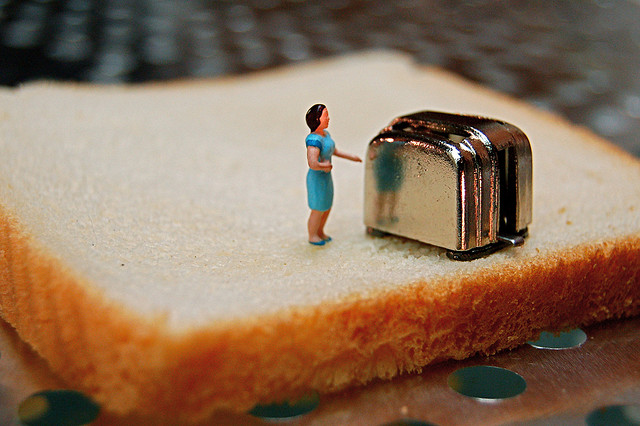People often tell me that I’m sensitive.
In fact, I heard it last night as I ordered my dinner and requested that it be dairy, gluten and soy free. I know that if I don’t avoid these foods, I will pay the price later with a rumbling, unhappy belly. (Yes, even my digestive system is sensitive.)
I used to cringe at being called sensitive or picky. I lived in fear of not being tough enough, outgoing enough or fun enough.
In a society where you are rewarded for being bold and outgoing, it is difficult to live on the other end of the spectrum.
About a year ago, I discovered the trait of high sensitivity. Much like being either introverted or extroverted, being highly sensitive affects your perception and interaction with the world around you.
So, what exactly does it mean to be highly sensitive?
According to sensitivity researcher, Dr. Elaine Aron, highly sensitive people are more aware of subtleties in their environment and pick up easily on other people’s energy and emotions. They process information on a deeper level and spend more time observing and reflecting before they take action. They also experience their emotions on a more intense level.
So how did this play out in my life?
Growing up, I was told that I was too shy, too quiet and did not raise my hand enough in class. I spent too much time on homework and was too much of a perfectionist. Itchy wool sweaters, socks that didn’t fit just right and pokey tags drove me crazy. I was incredibly sensitive to strong smells, bright lights and loud noises. I even refused to get off the bus on my preschool trip to the farm because of the overwhelming smell of manure.
I was made to believe that I was wrong, crazy or ridiculous for feeling the way that I did. I was told that I should be like everybody else and not let these things bother me. I should be more outgoing, less serious and get straight A’s—but not be a perfectionist.
I began to view my sensitivity as a flaw and developed the belief that I needed to transform myself in order to be accepted.
Unable to change my feelings, I turned my attention to what I could control: my body. I focused on perfecting my body through diet and exercise as an attempt to compensate for my perceived weaknesses and resulting lack of confidence. This quickly turned into an eating disorder and I found myself stuck in a cycle of restricting and binging on food.
As I became more open about my battle with emotional eating, body image and my sensitivity, the number of women who shared my experience amazed me. There appears to be a high correlation between being highly sensitive and struggling with emotional eating. Understanding this relationship can help us create peace with food and our bodies.
As sensitive souls, we often feel flawed and inferior to our less sensitive peers. Failed attempts to overcome our sensitivity cause us to turn our focus to our visible “flaws,” like our bodies. Our attention to detail and perfectionistic tendencies lead us to become exceedingly focused on how our bodies measure up in comparison to others (including but not limited to the impossible standards that are set for us in the media).
In our mission to attain the perfect body, we restrict our food intake and follow crazy diet rules. Since we are thinking about food constantly, it is the first thing we turn to in an attempt to numb our uncomfortable feelings.
This becomes a deeply ingrained pattern that is difficult to change until we acknowledge the underlying reasons our emotional eating began in the first place. Understanding our sensitivity and how it affects our relationship with food and our body is a powerful catalyst for our healing journey.
Let’s release judgment around our sensitivity and instead honor our unique needs and desires. As we start working with our sensitivity instead of fighting it, we will find a new, deeper sense of compassion and appreciation for ourselves.
The peace we are searching for lies not in attaining the perfect body, but in accepting and loving our highly sensitive selves.
~
Relephant Reads:
Emotional Eating: 3 Steps to a Binge-free Life.
A Survival Guide for Highly Sensitive People.
5 Ways to End Emotional Eating for Good.
~
Author: Kristin Hartjes
Editor: Alli Sarazen
Photo: JD Hancock/Flickr












Read 0 comments and reply